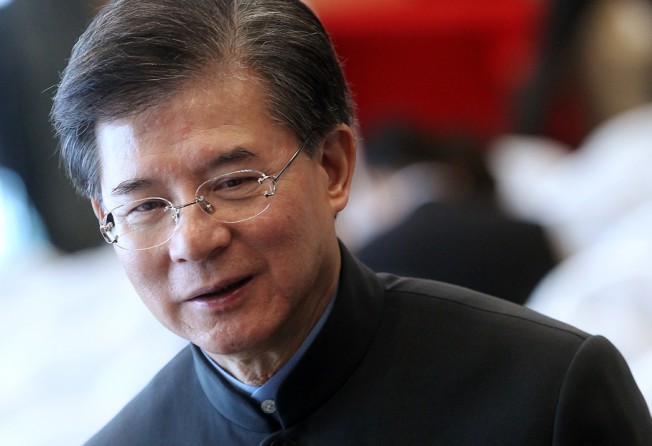Time to agree on changing our executive-led political system
Alice Wu says now we know an executive-led political system, however well intentioned, does not work, we have to look to change it

There's a certain thrill in gawking at the speck of sawdust in someone else's eye. What is rare, however, is to have someone call attention to the plank in his own eye. This happened last week at a forum on leadership and public policy.
A member of the Basic Law Consultative Committee of a bygone era, Dr Vincent Lo Hong-sui, admitted that when he and his colleagues wrote an executive-led political system into the law, they had "naively" counted on Hong Kong people's political apathy post 1997. Today's Hong Kong, he said, shows up their "ignorance and poor understanding of politics and democracy".
It's not the first time someone has pinpointed the flaw in our system: namely, that the office of the chief executive has no real political base because it is constitutionally required to have no political affiliation. This makes its relationship with the legislature fraught. Worse, its small-circle election method gives it the sovereign's mandate but not the people's.
No doubt the arrangement was made to ensure a smooth transition in 1997. Now it is exacerbating political strife.
These problems became apparent even in the days of Tung Chee-hwa. Tung was a man broadsided by unlucky breaks: the Asian financial crisis and the severe acute respiratory syndrome outbreak, for example. He paid the ultimate political price - as a scapegoat for the Article 23 disaster.
He proved the impossibility of an executive-led system that has been put into a political straitjacket. His allies - the pro-establishment camp - either sank with his ship or they jumped.
This same system has made opposition - even radical opposition, for some - the only way to gain political traction. Other than obstruct, the legislature has little power to do much.
Hongkongers' political awakening - which I believe occurred on July 1, 2003 - is a product of our system's flaws. "Hong Kong people governing Hong Kong" - in itself a promise of political activity, making Lo's admission of "naivety" a most interesting one - is what the system promised. Yet a supposedly strong executive-led government is stripped of actual political power, and the political power of the legislature is stripped of the power to affect policies.
These flaws have pitched people against each other, against the chief executive, and, by extension, against Beijing. With political reform on the table, it is time to address the need for party politics. The July 1 march in 2003 might have at the time made Beijing more suspicious of political parties. But a decade later, it surely must realise that political parties are not the root of our political problem.
Lo's "political epiphany" will add to the debate on political reform. In fact, his admission of error may turn out to be a gem.
We have been stuck in this political system for more than 16 years, and few people are under the illusion that a one-person-one-vote system is the panacea for all our woes.
Changes in our voting system aside, we must examine how to give party politics a proper place in our political system.
Alice Wu is a political consultant and a former associate director of the Asia Pacific Media Network at UCLA